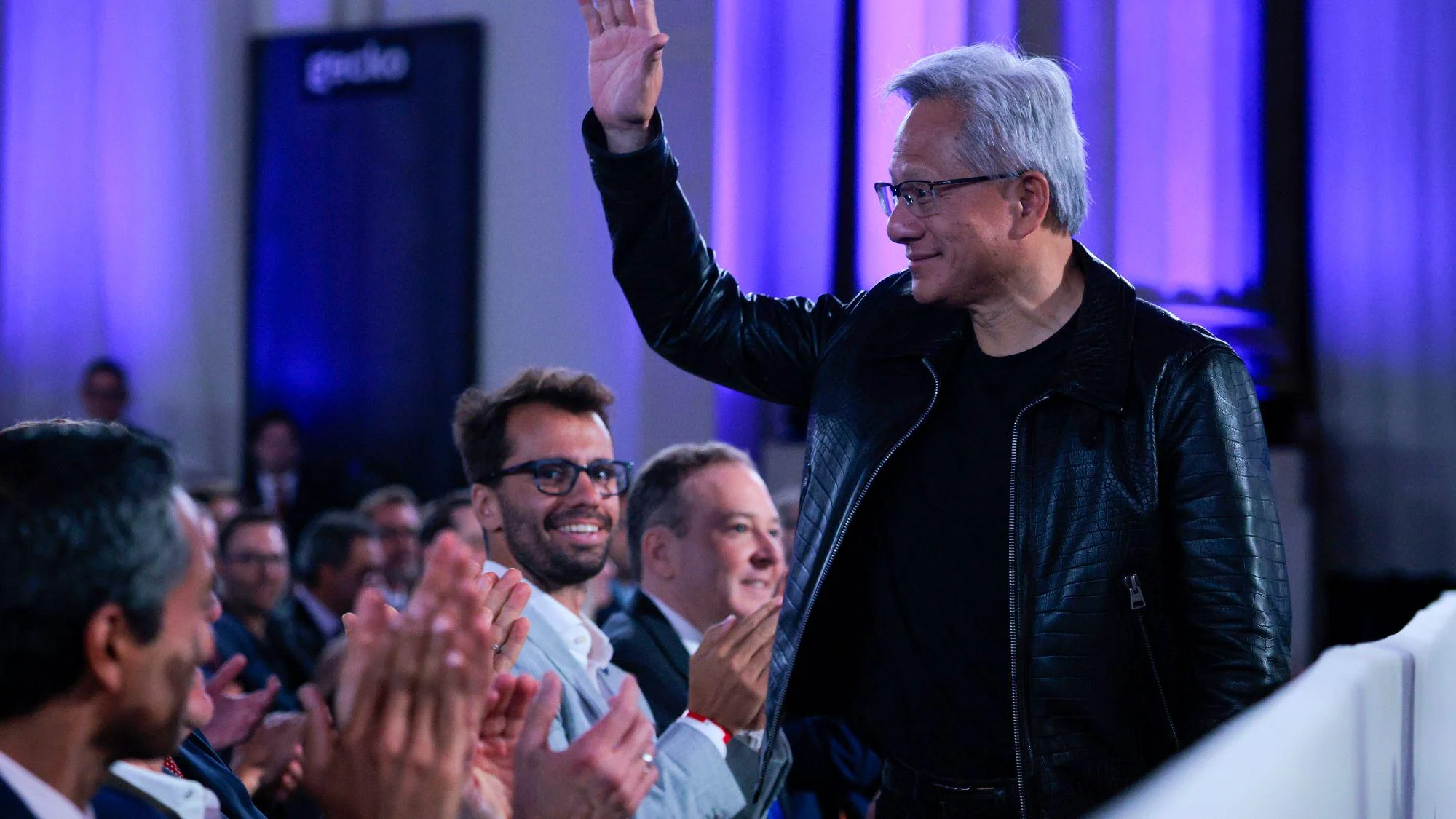October 8, 2025
Nvidia CEO Jensen Huang has voiced frustration over delays in the UAE’s AI chip deal, reportedly caused by U.S. pressure. The delay risks slowing regional AI expansion and complicating U.S.-UAE tech diplomacy.

Tensions are rising in the global technology and semiconductor sectors after Nvidia CEO Jensen Huang expressed open frustration over delays in the United Arab Emirates’ (UAE) proposed AI chip acquisition. According to a report by Tom’s Hardware, U.S. government pressure on the UAE to finalize pending American investment agreements before approving chip deliveries has placed Nvidia’s billion-dollar export deal in limbo.
The deal, originally negotiated in mid-2025, was intended to supply the UAE with a customized batch of H100 and GH200 AI processors — advanced chips used for large-scale artificial intelligence training, machine learning, and national computing infrastructure. However, sources close to the negotiations revealed that Washington’s insistence on “regulatory assurances” and export-control compliance has effectively slowed down the process, leaving Nvidia and the UAE’s AI partners in uncertainty.
Huang, known for his outspoken views on the future of AI, reportedly expressed irritation at what he described as “bureaucratic interference hindering innovation.”
“When politics gets ahead of science, progress stalls,” Huang said privately to industry executives, according to the Tom’s Hardware report.
The delay comes at a sensitive time. Nvidia faces fierce competition from emerging chipmakers in China, Taiwan, and South Korea, all aiming to dominate the AI semiconductor market valued at over $400 billion annually. The UAE, through its Technology Innovation Institute (TII) and G42, has become a regional leader in AI research and data infrastructure.
Analysts say the U.S. government’s strategic pressure reflects Washington’s cautious approach to AI chip exports amid fears of dual-use technologies and potential military applications. The Biden administration has already restricted shipments of advanced chips to China, and similar caution now applies to Middle Eastern buyers.
The UAE has been at the forefront of AI development in the Gulf, investing heavily in cloud computing, machine learning, and smart governance. Its national AI strategy aims to make the country a global leader in artificial intelligence by 2031. Nvidia’s partnership was seen as a cornerstone of this effort — enabling local data centers to train large-scale language models and support government initiatives in healthcare, finance, and transportation.
Industry experts now warn that the delay could derail project timelines and push the UAE to seek alternative suppliers.
“The longer the U.S. delays export clearance, the more likely the UAE will diversify its supply chain — including European or even Asian vendors,” said Dr. Farid Al-Mansouri, a technology policy analyst in Abu Dhabi.
The United States views the UAE as a vital regional partner but remains cautious about technology transfer involving sensitive AI and computing hardware. Reports indicate that Washington wants the UAE to finalize pending investment commitments with American firms before chip exports can proceed, effectively using the Nvidia deal as leverage.
A U.S. Department of Commerce spokesperson declined to comment directly but said the government “continues to engage constructively with international partners to ensure responsible AI innovation.”
Meanwhile, Nvidia finds itself caught between diplomatic tension and market urgency. With global demand for its chips outpacing supply, every delayed shipment carries financial and reputational consequences.
The UAE’s AI expansion is not just technological — it’s geopolitical. The country’s rapid digital transformation, combined with strong relationships with both the U.S. and China, makes it a unique crossroads in the global AI race. Analysts believe this delay could serve as a test case for how Washington balances economic cooperation with security policy.
As one senior Gulf official reportedly told The National,
“We understand the U.S. concerns, but the UAE’s AI development is transparent, peaceful, and future-oriented. We are partners, not competitors.”
For Nvidia, the frustration lies in lost momentum. Huang’s leadership has propelled the company into the world’s most valuable semiconductor manufacturer, but maintaining that edge depends on expanding into emerging AI markets — and the UAE remains one of the most lucrative.
As global tech diplomacy evolves, the outcome of this stalled deal may shape future U.S. export policies and the pace of AI innovation across the Middle East.